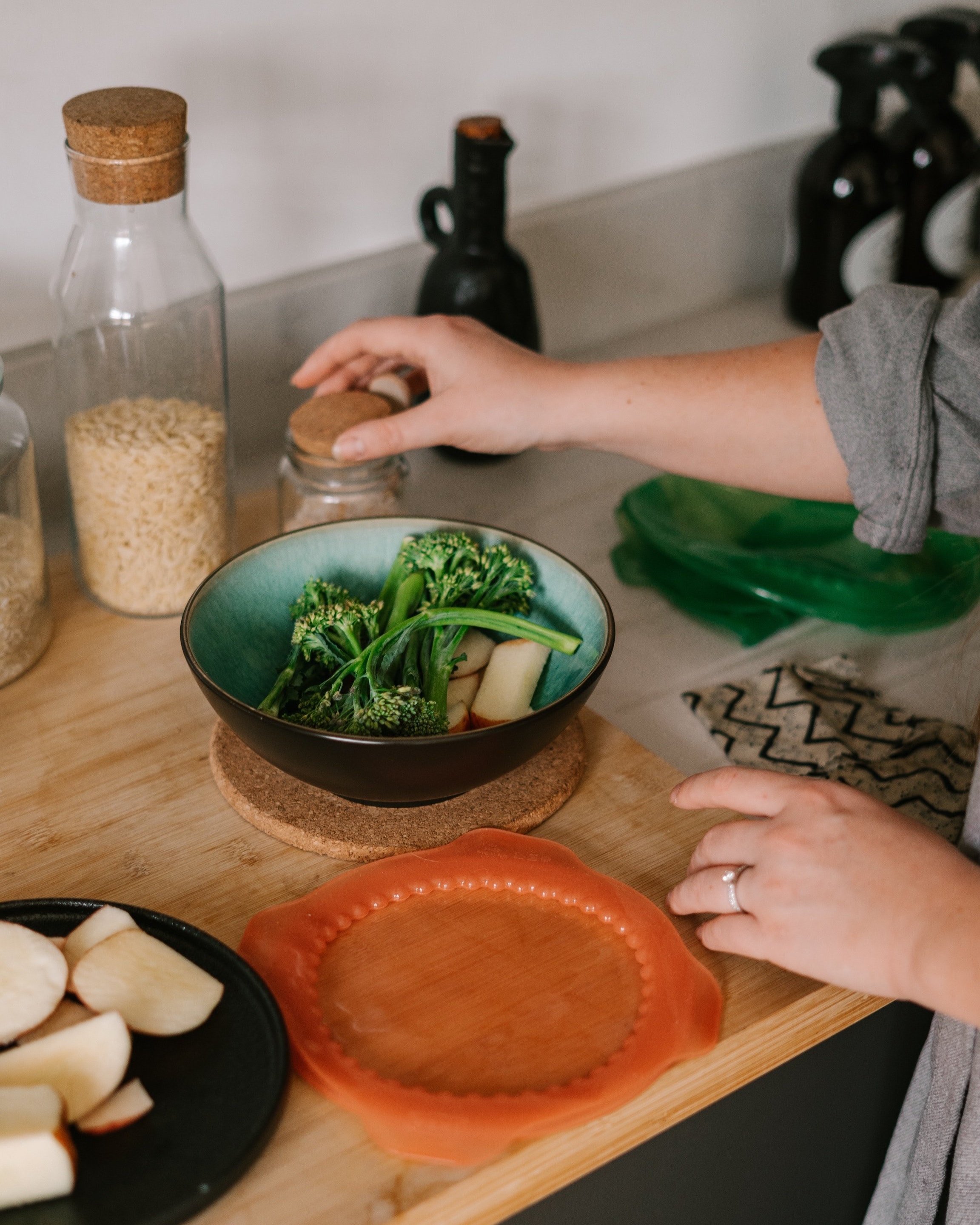How to Incorporate Low-Waste Living into Your Life
Easy Tips for Low-Waste Living
The climate crisis is a problem that requires radical change on a broader scale to ensure that everyone can live safely and with dignity in a just transition that leaves no one behind. For this, collective action is vital as it can push for the transformation we need.
At the same time, you might want to enact changes in your everyday life to align it with your moral values better. Doing so can be empowering when faced with so much climate doomisms and indifference, and individual action can also help inspire and inform the people around you and your community. If all that sounds good, you have come to the right place.
Here you can find a variegated list of sustainability-minded actions and habits to help you make more conscious choices in your everyday life and incorporate some low-waste living practices.
With the help of this little judgment-free guide, you can find different ways to engage with sustainability in your life and lower your impact in ways that go beyond tackling just your physical waste generation. We hope you find something here that works for you!
Try to reduce your food waste
Have you ever purchased something to eat, fully intending to make yourself something delicious with it, to then remember about it when it was already rotting or past its expiration date? We have all been there!
Food waste as a whole (not just happening in households) is a significant environmental problem, with 30 to 40 percent of the food supply becoming food waste in the United States.
Finding ways to reduce food waste in your household can help lower your waste and impact on the environment, saving you money and time.
Meal planning can be a fantastic ally in reducing food waste, as it allows you to plan your meals for the week ahead with the ingredients you already have on hand. Plus, it will help you avoid last-minute trips to the grocery store and save your decision anxiety.
Another habit you can incorporate to reduce food waste is starting to store your food correctly. Different foods require different storage methods. Learning more about that can help keep your food fresher and safer for consumption as long as possible while reducing the risk of foodborne illnesses.
Support your local food coops and farmers' markets
Supporting your local food coops and farmer's markets is a practice that helps promote local businesses and supports your local community members while also giving you a chance to get your hands on food that is not only locally-grown or regionally-grown but also often packaged free or low-package.
Learn how to mend your clothes
Learning how to perform some basic mending and sewing, such as sewing a hole, fixing a hem, or sewing a new button, can be an excellent way to make your clothes last longer and reduce textile waste while saving money.
Learning can seem intimidating if you have never picked up thread and needle, but actually, getting your learning journey started could be easier than you might think.
You can readily get your hands on a basic sewing kit (if you don't own one already) or even borrow one from your friends, family, or neighbors when in need. The internet can also come to your aid, as you can easily find many helpful and free beginner sewing and mending tutorials all over the web, from Youtube to Pinterest to sewing blogs.
Learning how to mend and fix your clothes yourself can also be a relaxing and rewarding experience that allows you to wind down while acquiring a helpful life skill.
Get to know your local waste management system better
Have you ever heard of "wish-cycling"? The term wish-cycling is used to describe throwing an item into a recycling bin that has few chances of actually being recycled.
Each city and country worldwide has its recycling system. Understanding how your local waste management system works is essential to reduce the amount of waste from your household that ends up in a landfill when it could have been recycled.
So take some time to learn what can and cannot be recycled in your area, what kinds of waste go together, and how you might need to prepare specific items before you put them in the recycling bin.
By knowing what kinds of waste are handled by your local waste management system and how to dispose of them, you can recycle better and more efficiently, ensuring that the recyclable waste from your household is adequately recycled instead of ending up in a landfill instead.
Find a better bank
Commercial banks significantly influence the climate crisis as they finance fossil fuel companies and projects. Switching to a bank that doesn't provide banking services to the fossil fuel industry can help you ensure that you, as a bank client, aren't investing in fossil fuels.
When it comes to new purchases, start to think second-hand first
Thinking second hand first instead of new is a fantastic budget-friendly habit to develop to reduce environmental impact.
Of course, only some things you might want or need to buy will be available second-hand, especially if you live in a more remote area. Still, developing the habit of making second-hand your first choice can lower your purchases' environmental impact and reduce their cost significantly.
For these reasons, you might want to look into what resale apps and websites are available in your country and area and maybe even join your local Facebook resale groups.
In the same vein, you could start borrowing "once in a blue moon" items you might need just once or twice like a dress in a specific color for a dress-code event or a particular kind of screwdriver for that one busted home appliance from your friends and family members instead of buying them new.
Learn how to grow some of your food
Growing some of your food at home is a fun, relaxing hobby and an excellent way to save money and reduce your household's physical waste. Learning about different plants and cultivation techniques can be a rewarding and wholesome experience, and taking care of them daily can be a lovely way to relax at the end of your day.
Contrary to popular belief, you don't need to own a large garden or backyard, live in the countryside, or even have any gardening experience to grow some of your food at home.
With the right information and time to spare, you can grow some tasty edible plants at home, even living in a city apartment. You can almost mindlessly re-grow some types of vegetables like leeks, celery, and shallots from salvaged scraps, and you can also grow a bunch of herbs like mint or rosemary, even on a windowsill.
If you are a city-dweller, you could also see if there are any community gardens in your area that you can join. Community gardens strengthen community bonds and help bring fresh food into communities, so they are beautiful projects to support and participate in. Joining them as a novice gardener can also help you learn faster and better, allowing you to learn from tips and tricks from more seasoned gardeners.
Use public transportation if you can
Access to efficient public transportation brings many benefits to communities, from economic to health-related ones.
Using public transportation instead of private transportation modes is not only a terrific way to lower your individual environmental impact, but it's also a great habit for your wallet, as it can save you the money you would have spent on car maintenance and gas. Taking public transportation can also help maintain bus services in your area, especially if you live in a rural or sparsely populated area.
Unfortunately, not everybody has access to efficient public transportation or lives in a walkable city. If you have the option, consider taking the bus or train instead of driving your car.
Consider switching to a renewable energy provider
This one might be a somewhat underrated low-waste tip, but switching to a renewable energy provider is something you can do in your everyday life to support renewables and the move away from fossil fuels, which are the most significant contributor to climate change.
Depending on the area where you live, you might have access to renewable energy provided by municipal and 100 percent public energy companies or local community solar. Having access to providers committed to consumer-oriented energy production can make switching to renewable energy cheaper if this kind of energy is more expensive in your country, so take some time to do your research and evaluate your options.
Not being able to live as sustainably as you might like can trigger a lot of eco-guilt. Living according to one's moral framework can be taxing in a world not built with fairness and sustainability in mind.
When engaging in individual action, it is essential to remember to be kind to ourselves and remember that our life circumstances might not always be accommodating to our values. Taking care of the Earth begins with taking care of ourselves too!
About the Author
Roberta Fabbrocino is a journalist specialized in climate change and sustainability-related topics. Her articles have been published in several international eco-publications. Roberta also works as a content writer for sustainable companies.
MAKE SURE TO PIN THE PHOTO BELOW TO SAVE THIS POST FOR LATER!
WANT TO FIND SUSTAINABLE BRANDS? VISIT OUR BRAND DIRECTORY!
Our Brand Directory is home to hundreds of sustainable brands, from makeup to cleaning supplies, from underwear to shoes. We have broken everything down by category for easy shopping, along with discount codes unique to Sustainably Chic viewers.

































